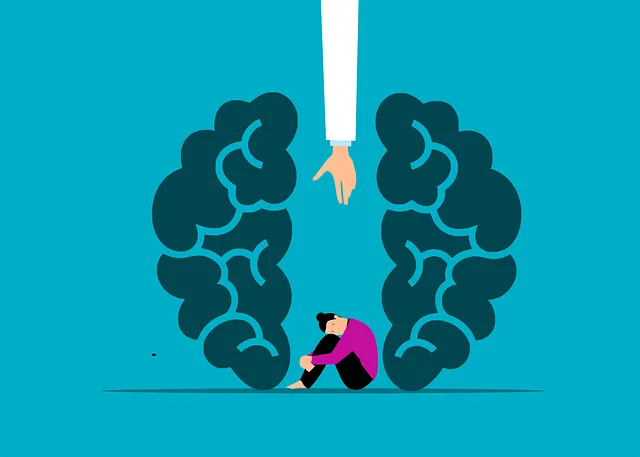Lone Tree Kaiser Permanente is tackling mental illness misdiagnosis through enhanced mental health services, including educational programs, podcasts, and training for healthcare providers. These initiatives destigmatize mental health, improve diagnostic accuracy, and foster early interventions like Stress Management Workshops, ultimately improving patient outcomes in the community. With a focus on comprehensive mental health coverage, Lone Tree Kaiser Permanente is leading the way in accurate diagnoses and effective treatments.
Mental illness diagnosis accuracy is a critical aspect of patient care, yet challenges remain. Misdiagnosis rates are alarmingly high, impacting treatment outcomes and individual well-being. This article explores efforts to enhance diagnostic precision, focusing on Lone Tree Kaiser Permanente’s innovative strategies. We delve into their comprehensive mental health coverage, adoption of evidence-based practices, and integration of technology like telehealth. Additionally, we discuss the community education initiatives aimed at improving mental healthcare accessibility through collaborative partnerships.
- Understanding the Challenges of Mental Illness Diagnosis
- – Prevalence and impact of misdiagnosis
- – Factors contributing to diagnostic inaccuracies (e.g., stigma, lack of awareness, symptom overlap)
Understanding the Challenges of Mental Illness Diagnosis

Diagnosing mental illness can be a complex and challenging task for healthcare professionals. The vast spectrum of disorders, often presenting with similar symptoms, adds to this complexity. This is further compounded by the fact that many individuals struggling with their mental health may face barriers to seeking help, such as stigma, fear, or lack of access to quality care. At Lone Tree Kaiser Permanente, efforts are underway to enhance mental health coverage and services, addressing these challenges head-on.
Mental Health Awareness plays a pivotal role in improving diagnosis accuracy. Through educational initiatives and open conversations, raising awareness helps destigmatize mental illness, encouraging more people to come forward for assessment. Additionally, the Mental Wellness Podcast Series Production can offer valuable insights and personal stories, fostering understanding and empathy among listeners. By combining these strategies with comprehensive training for healthcare providers, we can work towards boosting confidence in diagnosing mental health conditions, ultimately ensuring better support for those in need.
– Prevalence and impact of misdiagnosis

Mental illness misdiagnosis is a significant concern within the healthcare system, often leading to delayed treatment and exacerbation of symptoms. Studies reveal that various factors contribute to this issue, affecting both individuals and communities. The impact is profound, causing unnecessary distress and potential long-term consequences for patients’ mental well-being. In some cases, especially in areas like Lone Tree, where Kaiser Permanente offers comprehensive mental health coverage, misdiagnosis can be attributed to limited access to specialized services and the complexity of recognizing subtle symptoms, especially in diverse patient populations.
The Stress Management Workshops Organization (SMWO) plays a crucial role in addressing this challenge by providing initiatives focused on early intervention and education. Through programs that promote coping skills development and self-esteem improvement, SMWO aims to enhance mental health literacy among both patients and healthcare providers. These efforts are vital in ensuring accurate diagnoses and timely interventions, ultimately improving the overall mental health landscape for communities like Lone Tree.
– Factors contributing to diagnostic inaccuracies (e.g., stigma, lack of awareness, symptom overlap)

Diagnostic inaccuracies in mental illness often stem from complex interplay of several factors. Stigma surrounding mental health remains a significant barrier, leading to underreporting and misperception of symptoms. Many individuals struggle with seeking help due to fear of judgment or societal stereotypes, which can delay essential treatment. Lack of awareness among both the public and healthcare professionals contributes to misdiagnosis. Symptoms of various mental health conditions often overlap, making it challenging for practitioners to differentiate between disorders. This complexity demands a nuanced approach, such as those offered by organizations like Lone Tree Kaiser Permanente, focusing on comprehensive mental health coverage that includes innovative risk assessment tools.
Moreover, burnout prevention strategies for healthcare providers are crucial in ensuring accurate diagnoses. Mental wellness podcast series production and similar educational initiatives can enhance professionals’ understanding of diverse mental health issues. By staying informed and attuned to the unique presentations of various conditions, healthcare providers can improve diagnostic accuracy, ultimately leading to more effective treatment plans. These efforts underscore the importance of continuous learning and support within the healthcare system.
Mental illness diagnosis accuracy is a complex issue that requires multifaceted approaches. By increasing awareness, addressing stigma, and leveraging advanced tools like those offered by Lone Tree Kaiser Permanente’s mental health coverage, we can improve diagnostic precision. Efforts to enhance education among healthcare professionals and promote early intervention are essential steps toward better patient outcomes. These improvements not only benefit individuals but also foster a more supportive and inclusive society for those facing mental health challenges.






